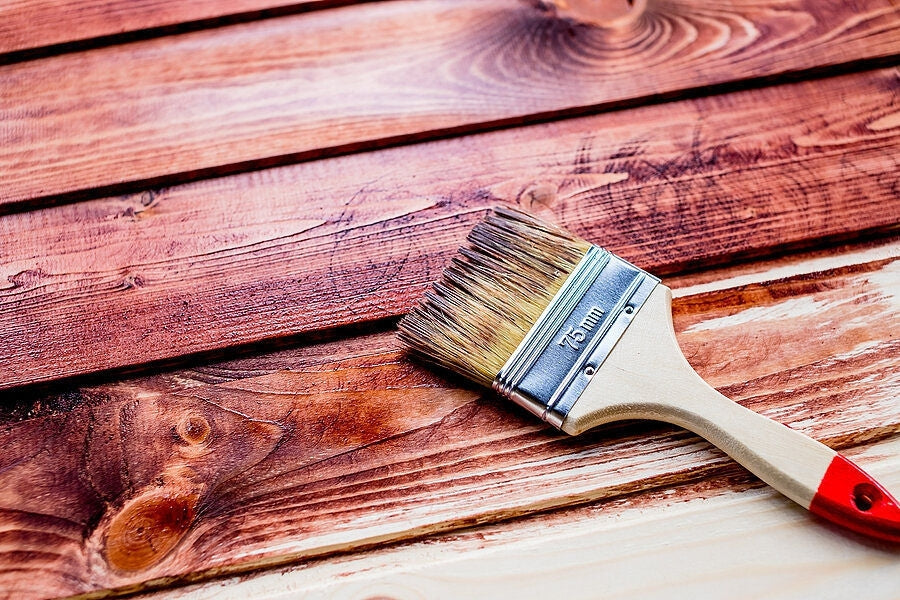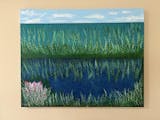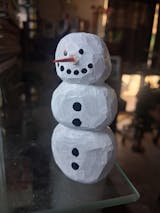There are several techniques to make natural wood stains.
Staining with Eco-Solve
Materials: Eco-Solve, Natural Earth Pigment, Large soft brush
- Mix pigment with Eco-Solve at about a 1:4 parts ratio. Add additional pigment for a more opaque stain, or additional Eco-Solve for a more transparent stain.
- Brush the stain onto the wood in the direction of the grain.
- Let dry.
- Recommended finish with Natural Varnish - We find that this stain requires a varnish coat to keep the pigment from rubbing off.
Staining with Walnut Oil
Materials: Walnut Oil, Natural Earth Pigment, Large soft brush, Clean dry rag
- Mix pigment with Walnut Oil at about a 1:4 parts ratio. Add additional pigment for a more opaque stain, or additional Walnut Oil for a more transparent stain.
- Brush the stain onto the wood in the direction of the grain.
- Immediately wipe with a dry, clean rag in the direction of the grain.
- Let dry.
- Optional (not necessary): Recommended finish with Natural Varnish.
Staining with Botanical Dyes
Materials: Natural Egg Dye Kit (fruit, herb and veggie concentrates), Water, Large soft brush
- Mix Natural Egg Dye packet with 1/2 cup of hot water.
- Optional: Add 15% solution of alum to add to lightfastness.
- Brush the stain onto the wood in the direction of the grain.
- Let dry.
- Optional: Recommended finish with Natural Varnish
Shaker Stain
Materials: Natural Earth Pigment, Water, Clean dry rag
- Combine 1 Tbsp. Natural Earth Pigment and 1 cup of water in a saucepan.
- Gently boil it down until you have a thick paste, about 10 minutes. Let this cool.
- Rub the stain paste into wood using a rag. Rubber gloves should be worn to prevent staining of fingers.
- Let each coat dry.
- Rub in successive coats until the wood will not absorb any more.
- Since there is no binder, a sealer must be applied to prevent the color from transferring. Recommended to seal with Natural Varnish.
Varnish Stain (not featured on video)
Materials: Natural Earth Pigment, Natural Varnish, t-shirt material or filter
1. Mix pigment directly into Varnish - the more pigment, the more opaque the stain - test until satisfied
2. Filter - pour colored varnish through tight knit fabric (t-shirt material is good) or paint filters to filter out any granules of pigment that are left.

More of a visual learner? Check out our vibrant wood stain recipe tutorials!
Interested in more recipes featuring Natural Earth Paint products? Visit our Recipes page!
Follow us on Instagram, Facebook, and Pinterest for more natural inspiration.







